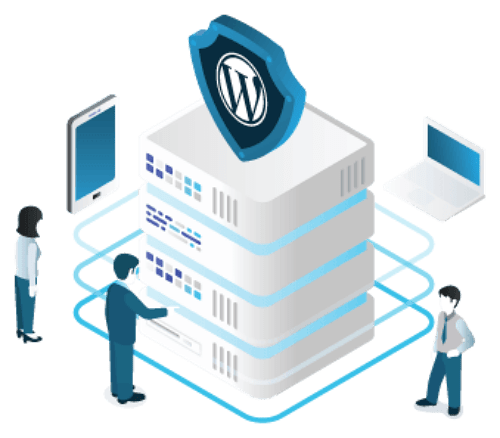
Introduction
In the world of web hosting, a Virtual Private Server (VPS) has emerged as a popular choice for website owners and developers alike. A VPS provides a middle ground between shared hosting and dedicated servers, offering more control, customization, and resources. However, like any other server, a VPS’s performance can be impacted by various factors. In this article, we will explore the ins and outs of VPS server performance optimization to ensure your website runs smoothly and efficiently.
Factors Affecting VPS Server Performance
Before delving into the optimization techniques, it’s crucial to understand the factors that influence VPS performance. These factors include the hardware specifications of the server, the chosen operating system, the server load, and the network connectivity.
- Hardware Specifications: The performance of your VPS heavily relies on the hardware it runs on. Choosing a VPS with adequate CPU, RAM, and storage resources is essential for smooth operation.
- Operating System: Different operating systems have varying resource demands. Selecting the appropriate OS can significantly impact your server’s performance.
- Server Load: The number of processes and applications running on your VPS affects its responsiveness. Overloading the server can lead to sluggishness and downtime.
- Network Connectivity: A well-connected network ensures faster data transfer, reducing latency and improving website speed.

Choosing the Right VPS Hosting Provider
Selecting a reliable VPS hosting provider is the first step toward ensuring optimal performance. Consider the following factors when making your choice:
- Researching Reputable Providers: Read reviews and testimonials to gauge the provider’s reputation and customer satisfaction.
- Understanding Server Resources Offered: Ensure that the VPS plan provides adequate resources for your website’s needs.
- Scalability and Upgrade Options: As your website grows, you may need more resources. A scalable VPS plan allows easy upgrades without downtime.
Optimizing Server Resources
To make the most of your VPS, it’s essential to manage its resources effectively:
- Managing CPU and RAM Allocation: Allocate resources according to your website’s demands. Monitor resource usage and adjust as needed.
- Balancing Disk Space Usage: Regularly clean up unnecessary files and maintain adequate free disk space for optimal performance.
- Utilizing SSD Storage: Consider using Solid State Drives (SSD) for faster data access and improved performance.

Operating System Optimization
The choice of the operating system can significantly impact your VPS’s performance:
- Choosing the Right OS for Your Needs: Select an OS that aligns with your technical requirements and expertise.
- Disabling Unnecessary Services: Turn off services you don’t need to reduce resource consumption.
- Keeping the OS Updated: Regularly update your OS to benefit from the latest performance improvements and security patches.
Web Server Optimization
The web server plays a crucial role in delivering your website’s content to users:
- Using a Lightweight Web Server: Consider using lightweight servers like Nginx or LiteSpeed for better performance.
- Configuring Caching Mechanisms: Implement caching to store frequently accessed data and reduce server load.
- Optimizing Web Server Settings: Fine-tune server settings for better performance and security.
Database Optimization
The database is the backbone of many websites, and optimizing it is crucial for optimal performance:
- Choosing the Appropriate Database Engine: Select the database engine that best suits your application’s needs.
- Indexing and Query Optimization: Create proper indexes and optimize database queries for faster retrieval.
- Regular Database Maintenance: Perform routine maintenance tasks, such as clearing old data and optimizing tables.

Content Delivery Network (CDN) Integration
A CDN can significantly enhance your website’s performance and user experience:
- Reducing Server Load with CDN: Offload static content to a CDN to reduce the load on your VPS.
- Improving Content Delivery Speed: CDN servers are strategically located, ensuring faster content delivery to users worldwide.
Security Measures
Protecting your VPS from threats is paramount:
- Implementing a Firewall: Set up a firewall to monitor and filter incoming and outgoing traffic.
- Regular Security Audits: Conduct periodic security audits to identify and address vulnerabilities.
- Securing SSH Access: Use secure SSH settings to prevent unauthorized access to your VPS.
Monitoring and Performance Testing
Continuous monitoring and testing are crucial for identifying and resolving performance issues:
- Using Monitoring Tools: Employ monitoring tools to keep track of your VPS’s resource usage and performance.
- Stress Testing and Load Balancing: Conduct stress tests to assess your VPS’s capabilities and implement load balancing when necessary.
- Identifying Bottlenecks: Identify performance bottlenecks and address them promptly.

Scaling Your VPS Server
As your website grows, scaling your VPS becomes essential:
- Knowing When to Scale Up: Monitor your website’s traffic and performance indicators to determine when to scale up.
- Vertical and Horizontal Scaling: Choose between vertical scaling (upgrading resources on the same server) and horizontal scaling (adding more servers).
- Auto-Scaling Options: Some providers offer auto-scaling solutions, automatically adjusting resources based on demand.
Tips for Website Optimization
Besides VPS-specific optimization, website optimization practices also play a vital role:
- Optimizing Images and Media: Compress images and videos to reduce their file sizes without compromising quality.
- Minimizing HTTP Requests: Reduce the number of HTTP requests by consolidating files.
- Browser Caching Techniques: Implement caching strategies to reduce the need for redundant data downloads.
Balancing Performance and Cost
While aiming for top-notch performance, it’s essential to manage costs effectively:
- Evaluating Performance Requirements: Assess your website’s performance requirements realistically.
- Cost-Effective Optimization Strategies: Choose optimization methods that provide the most significant performance improvement for the cost.

Conclusion
VPS server performance optimization is vital for a smooth and efficient online presence. By understanding the factors influencing performance and implementing the right strategies, you can ensure your VPS operates at its best, providing visitors with a seamless experience.
Visit us for 24×7 technical and dedicated support.